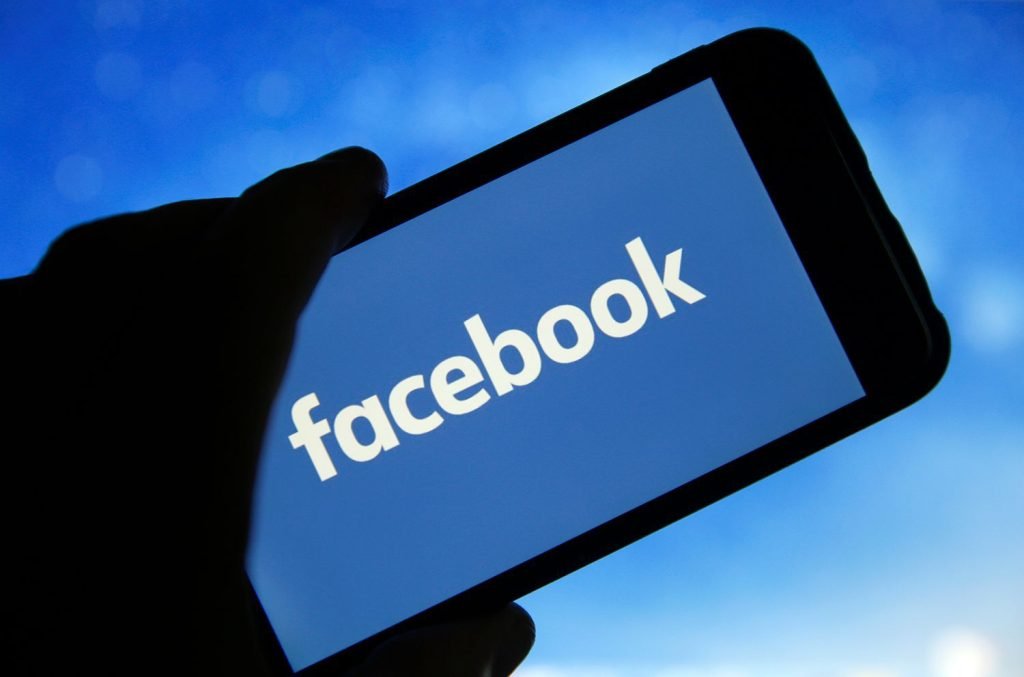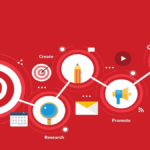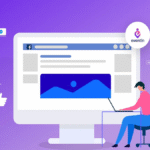Facebook has become one of the most widely used marketing platforms worldwide. Over time, social media has grown by growing its networks of advertisements to accommodate a wider variety of companies. Paid advertising has several drawbacks, even if many of the benefits of advertising on Facebook are obvious.
You need to understand what Facebook provides companies and how its paid ad network is designed to provide a range of advertising opportunities before you can fully appreciate how it could assist you in reaching new audiences. Facebook now accounts for 20% of digital advertising and has expanded its advertising options, with Google following suit. It makes sense to consider the benefits of Facebook advertising for your business as people across the world become used to fewer in-person interactions and brick-and-mortar results.
Reasons To Include Facebook Advertising In Your Business

1. Micro-Aim for Your Precise Audiences
One of the benefits of advertising on Facebook is that it helps you micro-target your audience. Facebook is only one of several social media platforms that provide marketers with the ability to target ads to specific user groups based on user data. The wealth of data is, in fact, one of the most alluring aspects of Facebook advertising.
The audiences that are most relevant to your business are the ones you can micro-target. Facebook’s precision makes it possible to target a certain demographic with every ad campaign. Businesses may use Facebook business advertising to focus their target customer base on the following demographics:
- Gender.
- Age.
- Location.
- Languages.
- Education.
- Job title.
- Income.
- Political Inclination.
- Interests/ Hobbies.
- Purchase behaviors and History.
With Facebook business advertising, you can target your audience with caution. Businesses can create campaigns targeting their “core audiences” by determining their interests based on the categories. You have the option to target those who have already engaged with your brand while using Facebook advertising.
Facebook ad networks leverage visitor insights that include cumulative data on individuals who engage with your brand page and their search likes and dislikes. After creating their audiences in Audience Insights, marketers may move them to Facebook’s “Ads Manager” tool.
The fact that Facebook ads provide more information than typical search PPC does represent one of their advantages. Ad networks like Google and Bing are unable to provide exact demographic targeting due to the nature of search engines.
2. Ads Manager
To take advantage of the many advertising channels that Facebook offers, such as Instagram, Messenger, and Audience Network, you may begin by using Ads Manager. It’s a one-stop shop for creating advertisements, planning their appearances in terms of time and location, and tracking the effectiveness of your campaigns based on your marketing goals.
With the help of the Ads Manager app for iOS and Android, you can monitor your campaign while on the go. With it, you’ll be able to manage your budget, create and edit advertisements, monitor their insights, and schedule advertising from any location.
3. Presence Of Both B2B And B2C Businesses
The presence of both types of businesses is one of the benefits of Facebook advertising. You might believe that B2C businesses are the only ones to which you can advertise through Facebook marketing. It may surprise you to learn that B2B companies spend 74% more time on Facebook than other firms and also launch advertising there. Given the competitive nature of the B2B industry, master the use of Facebook.
With the right message, targeting, ad type, and off-Facebook user experience on your website, you can be successful. When B2B prospects go online for a quick snack in between business meetings or leave the workplace, they often forget that they are still targets. Both of them are the same.
You may stay in their consciousness by retargeting them on Facebook. Facebook provides the following B2B-friendly areas for attracting new users: Name of employer, job title, industry of employment, industry of interest, size of employer’s business, and business travelers.
4. Meta Ads Placements
The places where your advertisements may appear are called placements. The platforms where your advertisement could appear include Facebook, Instagram, Messenger, and Audience Network, based on the campaign objective you choose. Which locations are accessible depends on your ad type and preferences. Not every ad slot is available for use.
Multiple placements increase the number of people who see your advertisement and may increase the campaign’s efficacy. The cost of your advertisement does not go up if you increase the number of placements. Facebook classifies ad placements according to user behavior on various platforms.
For instance, people’s responses to your Messenger Stories, Instagram, and Facebook advertisements are similar. Facebook’s distribution system can maximize your spending if you use the automatic placements option for your adverts. On the other hand, ad placement is an option.
5. Offers Robust Analytics
One of the benefits of advertising on Facebook is that it offers robust analytics. Facebook offers you information and analytics on the effectiveness of your advertising with no restrictions. You won’t ever have to rely on your judgment or guesswork to determine what is and isn’t functioning.
You won’t need to calculate your conversion rates or any other social analytics since Ads Manager will have them all displayed for you. All you need to do is evaluate them and decide what to do next. For optimal outcomes, ensure you comprehend Facebook’s algorithm.
Metrics regarding your weekly reach, page likes, post engagement, and top-performing content are sent to you. However, it doesn’t stop there. Learn more about things like sales, clicks, and conversions. To be honest, this is only the beginning.
Rather than wasting money on guesswork or discovering after the fact that your investment was in vain, you can use this data to modify your advertising according to what is required. Recall that without tracking and measuring anything, you are unable to determine its effectiveness or identify areas for improvement.
Facebook offers you a great deal of control over monitoring and evaluating the effectiveness of your advertisements. However, there is a Facebook dislike button, so be sure to write excellent stuff.
6. Affordable & Low Cost
Facebook Ads are free for all companies to use, much like many pay-per-click advertising networks; the Ads Manager tool is also free. The expenses related to providing a budget and running advertisements are the sole costs.
This is one of the most alluring advantages of Facebook advertising for many small and medium-sized business owners. Facebook ad costs vary depending on several criteria, including industry, budget, and ad kinds, but generally speaking, advertisers can anticipate paying between a few cents and a few dollars per click.
Facebook advertisements are inexpensive. The average cost dropped by 6% the previous year. Additionally, WordStream data indicates that retail, travel/hospitality, and fashion advertisers get the lowest average cost-per-click (CPC). In other words, Facebook may be worth $0.45 to $0.70 to them.
The average cost-per-click for all sectors combined is $1.72, which might help marketers estimate the approximate cost of their advertisements. Facebook advertisements give some of the finest return on investment (ROI) of any digital PPC advertising, and they are much less expensive than conventional advertising.
7. Expand Your Reach
Yes, that’s right. It expands its natural reach. You may be unaware that very few of your followers view the posts you make on your company page. Though that may seem dramatic, it is entirely accurate.
Facebook has been reducing the prominence of company pages in news feeds over the last several years, which is a painful algorithm change for all business owners. Mark Zuckerberg himself said that they would be giving greater weight to postings from friends and family, thus pushing company sites to the back burner.
Ads are necessary if you want to utilize Facebook for marketing in any way and want prospective customers to know about your company. A budget is necessary, even if it shouldn’t be too large. Facebook advertisements are highly cost-effective, and if you know how to target and produce them, the results will be well worth the investment.
8. Interact With The Current Audience
Gaining more followers is one of Facebook marketing’s most important advantages. It’s crucial to increase conversion, site engagement, and traffic from reference sites. Maintaining and consistently interacting with Facebook audiences is also crucial. Think of your Facebook page as an additional website or an online presence for your company.
People eventually get interested in connecting with you only when your website is unavailable. They need constant reminders and fresh justifications to continue to take you into account. Facebook’s goal is to increase the number of its followers and maintain the interest of its current clientele by posting visually appealing content.
Reaching a certain number of followers is the sole assurance of a sponsored campaign aimed at current clients. but will enable voluntary participation from users by generating a spur. The Facebook advertising platform provides easy-to-use solutions for managing budgets.
Real-time outcomes are tracked, and available to companies of all sizes, and they promote natural outcomes. Maintaining a Facebook profile might benefit your organic search visibility as well. By employing Facebook advertising to enhance social signals (likes, shares, and comments), you may indirectly affect your SEO ranking. It is one of the best benefits of advertising on Facebook.
9. Encourage Customer Loyalty
One of the benefits of Facebook advertising is that it encourages customer loyalty. Many companies now effectively utilize Facebook pages to give their fans a sense of community. These sites provide companies with an opportunity to engage directly with consumers to strengthen client loyalty and establish their brand.
Facebook advertisements provide companies with more opportunities to engage viewers, which is just one of its many advantages. You utilized Facebook advertisements to build stronger connections, which will ultimately result in greater growth, a higher retention rate, and more sales.
Although Facebook advertisements are inexpensive, you shouldn’t discount them based just on their cost. They’ll help your company reach new heights. Remember that there is an initial learning curve. The Ads Manager isn’t user-friendly, and results won’t appear right away. In business, indeed, you can never anticipate results right away.
Nonetheless, you will ultimately succeed in making money on Facebook if you put in the effort to understand how to utilize the network and test, test, and test your advertising.
A Few Words About Facebook
Meta Platforms is the owner of the American online social networking site Facebook. Facebook was started by Mark Zuckerberg, Eduardo Saverin, Dustin Moskovitz, and Chris Hughes, who were all undergraduates at Harvard University. With billions of users—of whom roughly half utilize it every day—Facebook stands as the biggest social network globally.
The primary office of the corporation is located in Menlo Park, California. All users may use Facebook, and online advertisements provide the majority of their income. New users may create profiles, upload photos, start new groups, and join ones that already exist.
The website is comprised of numerous components, including Timeline, a section where friends can message users and users can post content, Status, which allows users to update friends about their location or situation, and News Feed, which alerts users to changes to their friends’ profiles and status updates.
Through chat and private messaging, users may have private conversations with one another. Many other websites include a feature called the “Like” button that lets people show support for content on Facebook. Additional services featured in Meta Platforms include Instagram, a picture and video sharing social network; Messenger, an instant messaging app; and WhatsApp, a text messaging and VoIP service.
Facebook’s past is convoluted. In 2003, it began as a Facemash at Harvard University, a website where students could rank the beauty of their peers. Because its principal creator, Mark Zuckerberg, received resources in violation of university policies, the program was canceled after only two days.
450 individuals visited Facemash (with 22,000 votes cast), despite its mayfly-like appearance. As a consequence of that success, Zuckerberg registered the domain name ‘http://www.thefacebook.com’ in January 2004. At that location, he then founded a new social network with classmates Saverin, Moskovitz, and Hughes.
FAQ
Q: Do Facebook advertisements benefit your company?
A: By using your Facebook page for advertising, you may connect with consumers who are interested in your company, goods, or services. You may generate leads, boost a post, advertise an event, or even persuade visitors to make purchases on your website. The first step is to choose the form of advertisement that best serves your company’s objectives from among the numerous options available.
Q: To what extent does Facebook advertising work?
A: Across all sectors, the average conversion rate on Facebook advertising is 9.21%. Conversion rates increased significantly as a result of lead conversion advertisements, which are more successful in sectors like fitness, education, and healthcare.
Q: Does local Facebook advertising function?
A: Make more local connections by using Facebook advertisements. To advertise locally, you may promote your company straight from your Facebook page. Simply choose to promote your business locally by clicking or tapping the Promote icon located at the top of your page.







I’m extremely impressed together with your writing talents and also
with the format for your blog. Is this a paid subject or did you
modify it yourself? Anyway keep up the excellent quality
writing, it is rare to see a great weblog like this one nowadays.
Thank you so much for the kind words! I customized it myself—I’m glad you like it! I really appreciate your support!